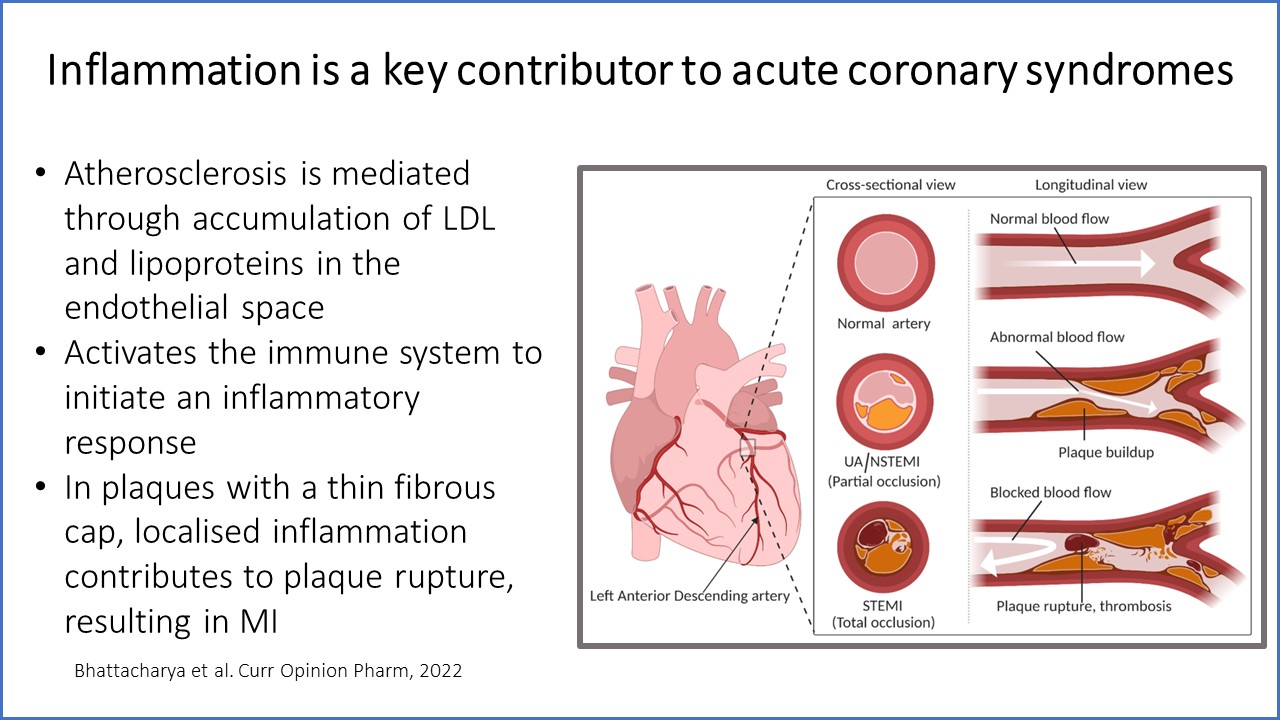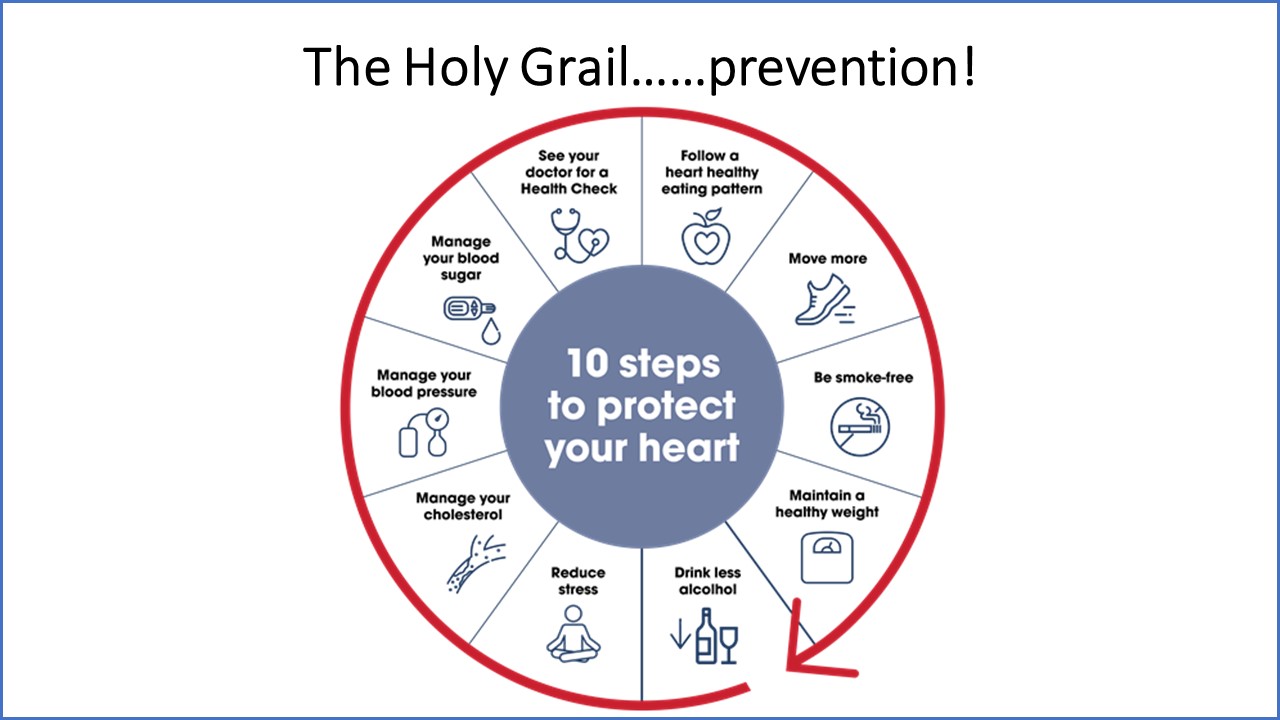Heart Disease: a clinical overview for dietitians by Dr Celine Gallagher, RN, PhD
 Anthea Talliopoulos, APD
Anthea Talliopoulos, APD
Heart disease is highly prevalent and a leading cause of death and disability in Australia and New Zealand; and as dietitians it’s of clear value to keep our broad clinical knowledge up to date.
In this informative presentation, academic nurse Dr Celine Gallagher explains the mechanisms of heart disease, the calculation of cardiovascular risk, the identification of at-risk groups, and medical and lifestyle prevention of key risk factors. She explains the mechanism of heart pump failure, electrical failure (including atrial fibrillation) and alterations in the cardiac plumbing (inflammation, atherosclerosis, myocardial infarction and associated ischaemic heart disease), as well as any signs and symptoms which people may experience when effected by these conditions. However, it is critical to note that 30% of people are asymptomatic, meaning that heart failure can go undiagnosed, highlighting the importance of screening in primary care. Early screening and detection is particularly crucial in high-risk groups, including Aboriginal and Torres Strait Islanders, Māori and Pacific Islanders, and also in socioeconomically disadvantaged individuals, to ensure that treatment and supports can be provided as soon as possible.
One of the easiest and readily available screening tools to continue to encourage the population usage of are the Cardiovascular Disease Risk Calculator in Australia and the MyHeart Check in New Zealand by the Heart Foundation , which take into account age and lifestyle factors, as well as blood pressure, and total cholesterol to HDL ratios.
When key risk factors are observed, hypertension, dyslipidaemia, and behavioural risk factors such as physical inactivity, smoking, excessive alcohol consumption, and inadequate fruit and/ or vegetable intake are all contributing modifiable factors. Lifestyle change and early medical management is key in both the prevention and in limiting the progression of heart disease to increase longevity, quality of life and overall health and well-being.
New research indicating the key role of inflammation in acute coronary syndromes is introduced. This opens up opportunity for conceptualising health behaviours that support the immune system and inflammatory pathways for better cardiovascular health.
Summary:
- Heart failure, atrial fibrillation and ischaemic heart disease are the most common types of heart disease.
- Hypertension, dyslipidaemia, and behavioural risk factors such as physical inactivity, smoking, excessive alcohol consumption, and inadequate fruit and/ or vegetable intake are all contributing risk factors which are modifiable through lifestyle change and medical management.
- It is critical that early detection of heart disease is provided, and that risk is prevented, especially in higher-risk population groups.
Dr Celine Gallagher is an academic nurse with a special interest in dysautonomia and cardiovascular disease. She has held several specialist clinical cardiology roles in the United Kingdom and Australia including management of a rapid access chest pain clinic, a nurse led angina clinic, a nurse led PCI clinic and as a cardiac rehabilitation consultant. Since entering a research career, she has focussed on improving outcomes in arrhythmia, with a special focus on atrial fibrillation (AF) and autonomic dysfunction. She completed her PhD in 2019, which explored the role of alternative models of care delivery and cardiovascular risk factor management to improve outcomes in AF. Her postdoctoral work focused on translational clinical research, implementing and evaluating interventions to improve outcomes and reduce health care burden in the AF population. Recently she has increasingly focused on opportunities and interventions to improve outcomes in dysautonomia and specifically Postural Orthostatic Tachycardia Syndrome (POTS).
To register for the presentation and associated documents including the assessment quiz click here
This presentation will assist dietitians in keeping our broad clinical knowledge of heart disease up to date, and focus on prevention through supporting behaviour change around modifiable risk factors.

